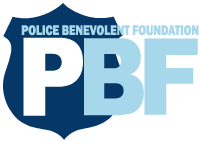Virginia: Putting the breaks on PTSD
The Virginia PBA and the Police Benevolent Foundation hosted a second in what will be a series of PTSD and suicide prevention seminars on March 28th. The Behind the Badge program, which was created with a purpose of combating PTSD and reducing the incidences of law enforcement suicide, is a collaborative effort with the In Harm’s Way and Mississippi L.E.A.P.S. programs headquartered in St. Petersburg, Florida and Meridian, Mississippi respectfully. This event was organized thanks to the interests and efforts of Mark Geier and Lt. Mark Posch – both from the Norfolk Police Department. Geier, after attending a previous Behind the Badge seminar, realized that it would be a valuable resource for the Norfolk district. He enlisted the help of Lt. Posch and the two secured the use of the Norfolk district station.
Most of the officers who attended the event were public servants from the local police jurisdictions. Many traveled as far as Richmond to attend. Because of the severity of the subject matter and the prevalence of suicide within the law enforcement profession, the Foundation works hard to include family members, friends, and administrative personnel in all of our seminars. Without making a concerted effort to include the peers and familial relations, the efforts to reverse this growing trend of self destruction will be much more difficult.
The most common impressions created by the seminar that (1) law enforcement suicide is a much larger problem than expected, (2) there is a great need for exposure of the ill effects of PTSD and its linkage to suicide, and finally (3) work must be done to reverse the growing trend of law enforcement suicide.
If you would like more information about the Behind the Badge program, or if your department is interested in hosting a seminar, please contact the PBF. You can also visit our website to find a collection of resources and additional information about this hidden epidemic. All of us must do our part to affect the change. Suicide is preventable.
PBA Member Says Thank You To Those That Helped Him In A Time Of Need
Dear Fellow Law Enforcement Officers and PBA members:
In November of 2010, I went to the doctor’s office with a sinus infection. I also noticed a small bump on my neck, near my right-side lymph node. Although the sinus infection cleared up with antibiotics, the bump was still present. I went to an ear, nose, and throat doctor on the Wednesday before Thanksgiving to have the bump tested. After the holiday, I received a telephone call telling me that the bump was positive for cancer. This is when my world turned upside down; both emotionally and physically. This is also when I started an open-ended prayer to God for the doctors, my wife, my children, and for the strength to get through this challenge.
My wife and I sat down with our two children, aged 8 and 12, and tried our best to explain what the doctor had told me in the telephone call. At this point, all I knew was that the cancer was caught early and that I was going to be treated with radiation. These treatments would be for 8 to 10 weeks, 5 days a week. I had no idea what to expect and how my body would react to the radiation. I weighed approximately 220 lbs. at my first doctor’s visit.
I told my supervisors at work about the news and they were nothing but supportive from the beginning. I was just counting down the days until I started my treatment. During this time, Randy Byrd (President – Cary Chapter of the North Carolina Police Benevolent Association) approached me and offered his support and explained how the Police Benevolent Foundation could help. At the time, I just wanted to be rid of the cancer and wasn’t thinking about the financial implications. What I was about to find out was how amazing a group of fellow law enforcement officers could be when a brother was in need.
The Police Benevolent Foundation set up an account so that donations could be taken for my medical bills. Individuals were allowed to make these donations through Wachovia bank, online with their credit card, and by texting through their cell phone. Without the Police Benevolent Foundation I would not have been able to pay all the bills that would start coming in.
At the beginning of December 2010, I had my first surgery to remove my tonsils and a small cancerous lump behind them. I was told I had ‘Tonsil Cancer’ and that this had caused the lymph node to swell.
After the Christmas holiday I had surgery to insert a feeding tube. According to the doctors, I would get to a point where I would be unable to eat, drink, due to the radiation treatments. I tried to eat everything I could before the treatment started because of the weight loss that I would experience.
I started treatment at UNC Cancer Center in Raleigh. These weekly treatments became a way of life for me. I was able to work for a short time before I started feeling the side effects and had to be at home.
As the treatments continued I was unable to eat, drink, or talk due to the soreness and the raw areas in my throat. I had to rely on the formula to feed myself through the feeding tube that was inserted in my stomach after Christmas. I was unable to keep working and would remain out of work for several months. During this time, there were several co-workers who showed up at my house with food for my family. They were truly a blessing to us.
The Cary chapter continued to raise additional funds by partnering with the PBF and a local car wash for a fundraiser. Tony and Bunkey Morgan (owners of Bunkey’s Car Wash) donated their businesses and paid their employees to assist with the effort. Numerous PBA members came out to support the cause at two locations. My wife Donna and my daughter Ashley went to one of the locations because I continued to be bed ridden. They were treated like family by all that were there. The funds that were raised at the car wash continued to help with my mounting medical bills. At this point I remember praying and thinking, “Wow, this is how God works miracles.”
As my treatments progressed it became more difficult to get through each one. I also wasn’t able to take care of the upkeep around our home. At this moment, God stepped in again, and showed me his kindness. I would be lying in bed and I would hear a lawn mower start up. It would be a co-worker mowing my grass like it was his own yard. This would go on every week for several weeks. On several occasions he would bring other co-workers and they would look like professionals manicuring my yard.
I finally reached the end of my radiation treatments and the doctors were ready to take out my feeding tube. They only had one condition. I had to put on some weight. At this point I weighed approximately 160 lbs. I started to eat some regular food and the doctor saw that I was able to survive without the formula that had gotten me to this point.
I had now been out of work for several months. I had exhausted my sick and vacation leave. The Cary chapter board, however, had previously worked with Town Council members to adopt a ‘Shared Leave’ policy for town employees. Numerous employees were able to help me at this time by donating vacation time for me to use. This provided a paycheck for my family that I wouldn’t have had otherwise.
On July 5, 2011, three months after the feeding tube came out, I returned to work at a weight of 165lbs. The doctors had told me that I would lose my sense of taste during the treatments but that it would return in time. Some of my sense of taste has returned and I continue to slowly gain weight. The cancer is gone, for now and for the next five years I will go back periodically to be tested. Hopefully, the cancer will never return.
In closing, I want to thank everyone who stepped up to the plate to help me in my time of need. I am especially grateful for the doctors who provided for my medical needs and my wife Donna who never left my side. Thanks are also in order for those amazing co-workers who cut my yard and never wanted anything but to see me well. I have two amazing children and they became my heroes during this ordeal. I will always be thankful for them and for being so brave in an uncertain time for their dad. I also want to thank the PBA and the PBF for supporting a member in need. It truly meant the world to me.
Sincerely,
Matt Long
Cary Chapter
*Matt started his law enforcement career with the Washington DC Metro Police Department and later worked for the Mesa Arizona Police Department before coming to the Town of Cary as an officer in 2004. Matt is currently assigned to a specialty team. In 2007, he was recognized as the Crisis Intervention Team Officer of the Year for the Cary Police Department by the National Alliance on Mental Health-Wake County Chapter. Matt is originally from Maryland and has an Associate degree in criminal justice from Prince Georges County Community College. He currently resides with his wife and children in Fuquay Varina.
Once again… the South leads the nation in officer deaths
In a recent report conducted by the National Law Enforcement Officer Memorial Fund, a disturbing trend was uncovered. Although the past year saw an increase in police officer “in the line of duty” deaths, there was a sharp spike in firearms related deaths. The 153 to 173 increase (a 13% rise) that occurred from 2010 to 2011 includes a 15% increase in deaths that resulted from gunfire. This was the greatest increase in over fourteen years. Even more disturbing is the fact that, since 2008, there has been a 70% increase in police officer deaths as result of gunfire.
The states with most fatalities include Florida, which leads the nations (14) led the nation, Texas (13), New York (11), California (10) and Georgia (10). In total, more than a third of the police officer deaths that occurred in 2011 can be found in these states.
Of the 172 officers killed in 2011, 68 of them were killed by gunfire.
|
Cause |
# Officers Killed |
|
attempting to arrest suspects |
14 |
|
responding to domestic disturbance calls |
9 |
|
shot while handling mentally deranged persons |
2 |
|
tactical/hostage/barricaded offender situations |
2 |
|
handling/transporting and custody of prisoners |
2 |
|
traffic pursuits |
1 |
Included in the latest research is a fact that should concern every officer. That fact centers around the number 27 – which is the number of officers who died as a result of “physically-related” reasons. This includes heart-attacks and physical stress due to undiagnosed illnesses and/or poor physical health. Maintaining adequate physical health is a vital part of the law enforcement profession, and every officer should work toward improving his or her physical health.
To read more of the NLEOMF report, please click here.


 click for more information
click for more information